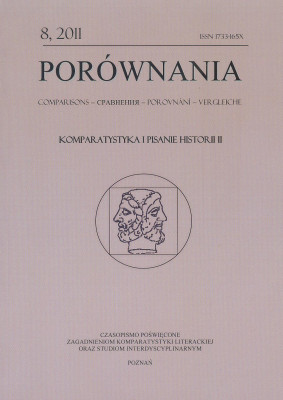The Peculiarities of the Central European Literary Space. Ironic Moralists and Ludic Thinkers
By means of posing the question about the validity of the concept of Central Europe the author recalls the history of different outlooks of Czech and Polish researchers on the existence of a community on this territory or lack thereof. The former were in favour of panslavism in the 19th century, the need for a synthesis of Slavic cultures and literatures in the 30s of the 20th century, whereas after the II World War they set slavism against the West which evoked criticism from the latter. Thus arises a different understanding of the Central European territory. The Czech mainly situated it within the borders of Austria-Hungary, whereas in Poland it was understood as much broader. However, some sort of a common distinguisher of Central Europe can be found in literature where it is mainly present in the novel (e.g. Kafka, Hašek, Musil, Gombrowicz) preceded by – as the author reminds – the Polish story (gawęda) and physiological essay popular in Poland. The element of humour in it has trangressed to satire and then grotesque creating the unique type of Central European humour often called the second distinguisher of the territory in question. According to the author the peculiarity of the Central European region is strictly connected with the Euroatlantic code and should be always analysed within this context.
ISSN: 1733-165X
| Article Title | Type | Size |
|---|---|---|
| Kardyni Pelikanova | [pdf] | [580 KB] |
